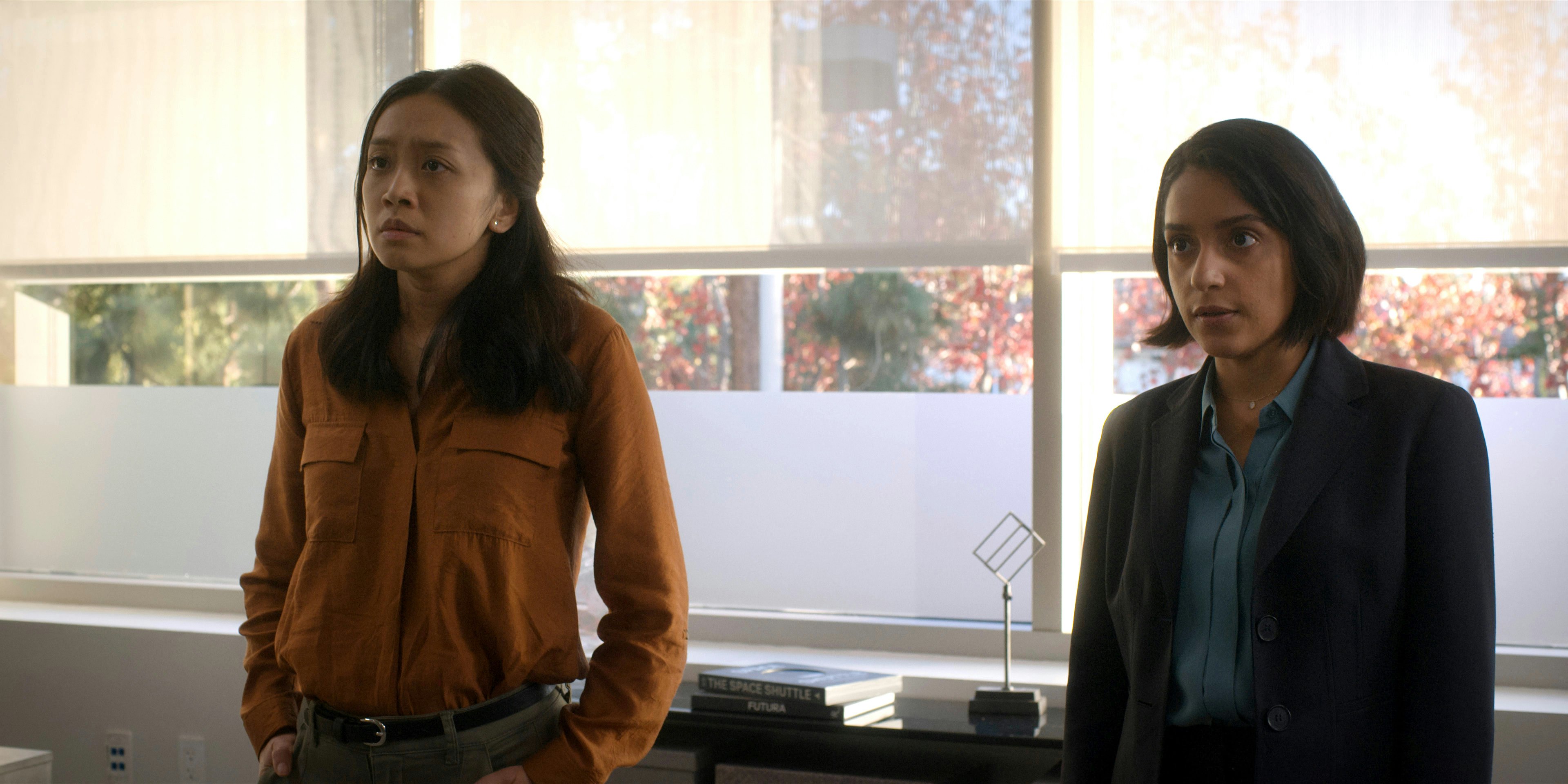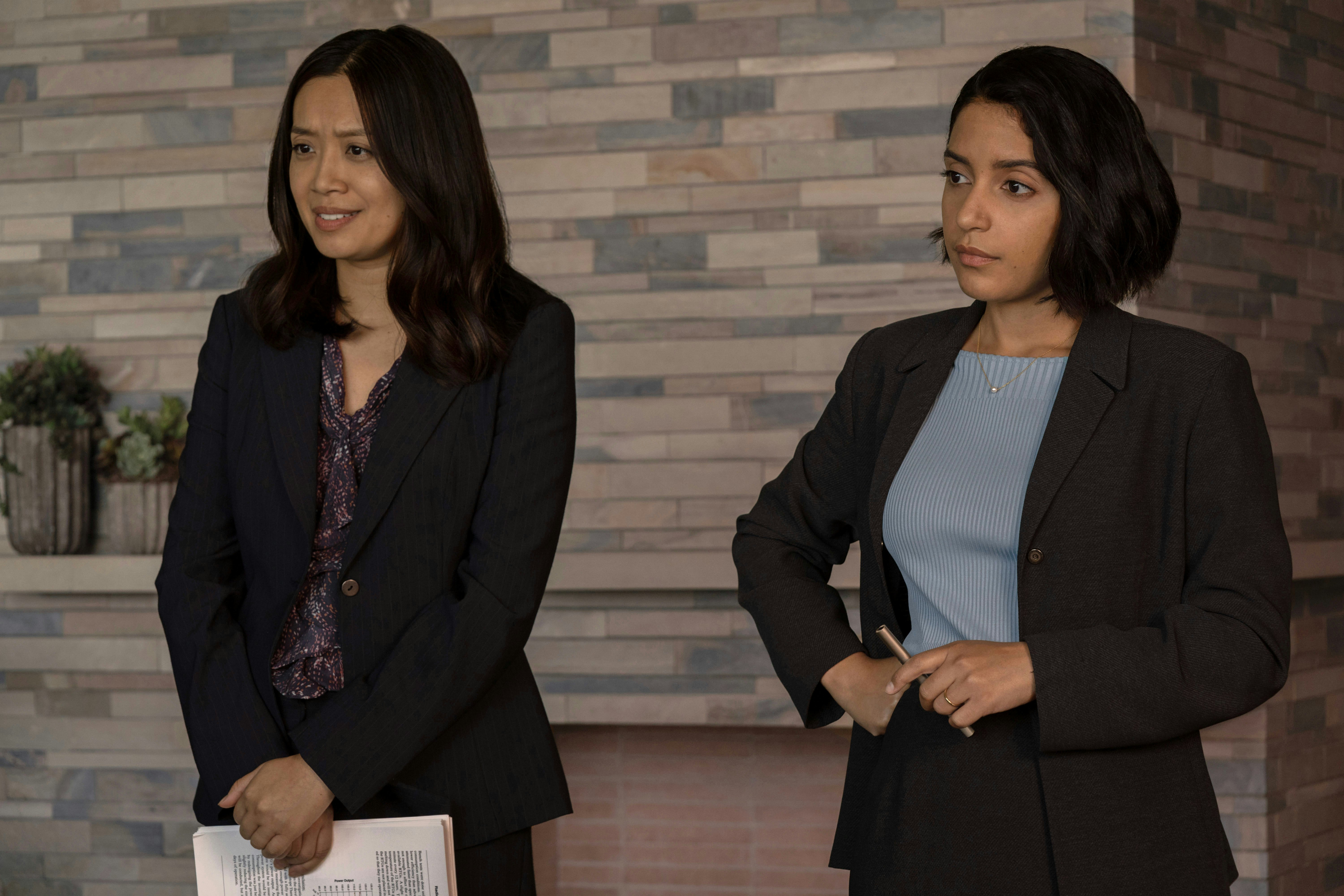
What happens when someone from Gen Z suddenly plays a boomer? In For All Mankind, stars Cynthy Wu and Coral Peña are playing two powerful women in their 40s, even though they’re in their 20s. And because For All Mankind Season 4 takes place in an alternate 2003, Kelly Baldwin and Aleida Rosales are part of what’s conventionally known as the Baby Boomer generation. What’s it like for actors to play characters of a very different generation?
Neither Wu nor Peña sees humanity in those terms. As Season 4, Episode 6 of For All Mankind shakes things up for Kelly and Aleida, the performers behind the characters tell Inverse the show’s real power. Spoilers ahead for “Leningrad.”
“We really try not to lose sight of the fact that even though the setting is closer to now, Aledia is still a child of the sixties,” Peña says. “I mean, she would be in her sixties [in 2023]. So, she’s someone who still carries the weight of previous decades with her. We don’t want to modernize her. And that’s the hardest task — how does the show become more modern, but stay true to those characters?”

In Season 4, Wu and Peña’s characters have teamed up to help jumpstart the aerospace company Helios, so both find themselves outside the comforts of NASA. Kelly and Aledia have come a long way; young girls in previous seasons, they’re now mothers and decisive women of action. For Wu, who’s played Kelly Baldwin since the 1980s setting of Season 2, this has meant embodying qualities she hasn’t yet experienced. A major plot point in Season 4 revolves around Kelly and her son, Alex, who was born in Martian orbit back in the Season 3 finale.
“Kelly got pregnant in Season 3, it was a traumatic situation,” Wu says. “And so in Season 4, she’s juggling life as a single mom, and she’s still a researcher. And her child has special needs because he wasn’t born on Earth. I started to feel really stressed on set, like I was Kelly Baldwin. And I’d see Ezrah [Lin] on set, and I’d feel stressed and overwhelmed. But then I realized that was what my character was feeling, too.”
“We both basically became our moms this season,” Peña adds.
It’s in this revelation that Peña and Wu feel the importance of For All Mankind isn’t really about analyzing history or criticizing a particular generation.
“I don’t think of it as like, oh, well, this is a boomer, or this is a Gen Xer,” Wu says. “Maybe we’re getting older, or maybe we’re playing these ages, but we just kind of see people. They’re all just humans.”
Peña agrees, saying, “As I do the show, I think I realize this more, that there’s always some younger part of us in the older version.” As evidence, Peña mentions Joel Kinnaman’s performance as Ed Baldwin this season, as well as Wrenn Schmidt as the aging Margo Madison. “Sometimes in Joel’s performance, you see the child in him,” Peña says. “Or with Margo, this was the woman who was basically raised by Wernher von Braun, and then had to confront him.”

In “Leningrad,” Aledia has her own generational reckoning with Margo, as she learns her mentor didn’t perish in the Season 3 bombing of NASA but instead seemingly defected to the Soviet Union. Meanwhile, Kelly has to make hard choices about going to Mars and taking her young son with her, possibly for good.
With all of these plot points unfolding, it seems clear the generation of For All Mankind characters who can continue beyond Season 4 begins with Kelly Baldwin and Aleida Rosales.
“We don’t know how many seasons we have or all of that,” Wu says. “But as far as their character journeys, yes, I feel we’re an optimistic show. We push boundaries. Both of our characters were kind of in someone else’s shadow, and now they’re stepping into their own and leading.”
Assuming For All Mankind gets more seasons, both Wu and Peña are ready for more adventures. But despite the show’s fundamental optimism, Peña wants everyone to remember this is still a TV show, and that means anything can happen.
“I say, no one’s safe!” Peña says. “Don’t get too comfortable. You never know what’s next.”







